Related Research Articles

Johann Christoph Friedrich von Schiller was a German playwright, poet, philosopher and historian. Schiller is considered by most Germans to be Germany's most important classical playwright.
Thalia, Thalía, Thaleia or Thalian may refer to:

Ludwig Ferdinand Huber or Louis Ferdinand Huber was a German translator, diplomat, playwright, literary critic, and journalist. Born in Paris, Huber was the son of the Bavarian-born writer and translator Michael Huber and his French wife Anna Louise, née l'Epine. He grew up bilingual in French and German after his parents moved to Leipzig when he was two years old. He lacked a classical education but read voraciously and was well versed in modern languages, and started publishing translations from French and English at an early age. He also translated plays that were performed in theatres all over Germany. In the early 1780s, Huber became friends with the jurist Christian Gottfried Körner, his fiancée Minna Stock, and her older sister Dora Stock, whom he later promised to marry. Together, the friends wrote in admiration to the poet Friedrich Schiller and successfully invited him to come to Leipzig. Körner and Minna were married in 1785 and lived in Dresden, where they were joined by Dora, Schiller, and finally Huber, who shared a house with Schiller.
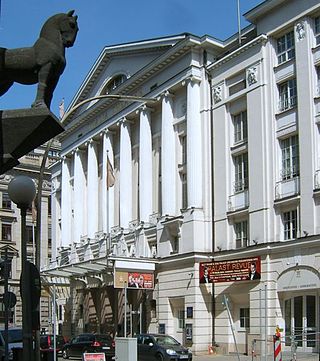
The Thalia Theater is one of the three state-owned theatres in Hamburg, Germany. It was founded in 1843 by Charles Maurice Schwartzenberger and named after the muse Thalia. Today, it is home to one of Germany's most famous ensembles and stages around 9 new plays per season. Current theatre manager is Joachim Lux, who in 2009/10 succeeded Ulrich Khuon.

Weimar Classicism was a German literary and cultural movement, whose practitioners established a new humanism from the synthesis of ideas from Romanticism, Classicism, and the Age of Enlightenment. It was named after the city of Weimar, Germany, because the leading authors of Weimar Classicism lived there.

Christian Gottfried Körner was a German jurist. His home was a literary and musical salon, and he was a friend of Friedrich Schiller.
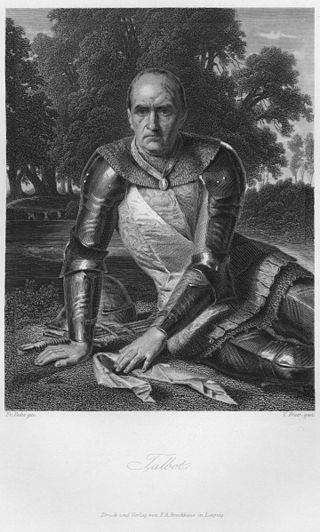
Ferdinand Ochsenheimer was a German actor and entomologist (lepidopterist).
Der Rattenfänger von Hameln is a grand opera in five acts by Viktor Nessler. The German libretto by Friedrich Hofmann is based on a 1875 romantic poem by Julius Wolff about the Pied Piper of Hamelin.

"Ode to Joy" is an ode written in the summer of 1785 by German poet, playwright, and historian Friedrich Schiller. It was published the following year in the German magazine Thalia. In 1808, a slightly revised version changed two lines of the first stanza and omitted last stanza.
Wallenstein is the popular designation of a trilogy of dramas by German author Friedrich Schiller. It consists of the plays Wallenstein's Camp, a lengthy prologue, The Piccolomini, and Wallenstein's Death. Schiller himself also structured the trilogy into two parts, with Wallenstein I including Wallenstein's Camp and The Piccolomini, and Wallenstein II consisting of Wallenstein's Death. He completed the trilogy in 1799.
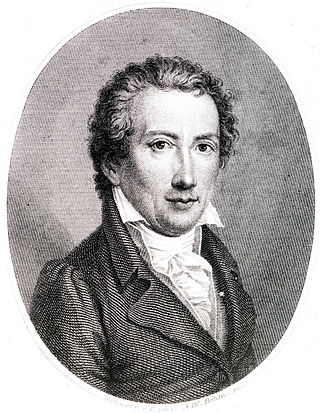
Johann Friedrich Rochlitz was a German playwright, musicologist and art and music critic. His most notable work is his autobiographical account Tage der Gefahr about the Battle of Leipzig in 1813 — in Kunst und Altertum, Goethe called it "one of the most wondrous productions ever to have been written". A Friedrich-Rochlitz-Preis for art criticism is named after him — it is awarded by the Leipzig Gesellschaft für Kunst und Kritik and was presented for the fourth time in 2009.
Walter D. Asmus is a German theatre director.
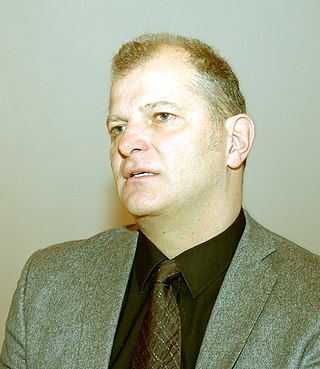
Martin Kušej is an Austrian theatre and opera director, and is director of the Burgtheater Vienna. According to German news magazine Focus, Kušej belongs to the ten most important theatre directors who have emerged in the German-speaking world since the millennium. He is considered one of the most important directors working today, acclaimed for his dark and incisive productions.
Radikal jung – Das Festival junger Regisseure is an annual weeklong German theatre festival at the Münchner Volkstheater, Munich. It began in 2005, as a forum and stage for the next generation of directors.
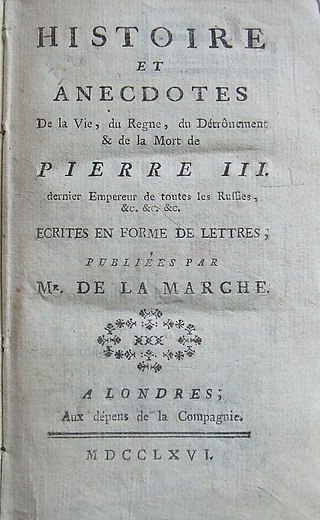
Christian Friedrich Schwan was a German publisher and bookseller.

Georg Joachim Göschen was a German publisher and bookseller in Leipzig, Kingdom of Saxony, notable for typography and his publications of music and philosophy. He was the patriarch of the Goschen family, whose English branch rose to prominence as bankers and politicians, including the Viscounts Goschen and Goschen baronets.

Marie Charlotte Cäcilie Geistinger (1836–1903) was an Austrian actress and operatic soprano, known as the "Queen of Operetta". She frequently appeared in works by Jacques Offenbach, Johann Strauss II and Franz von Suppé. She achieved particular acclaim for performing Rosalinda in the première of Die Fledermaus at the Theater an der Wien in 1874. In 1881, her debut at the Thalia Theatre in New York was well received.
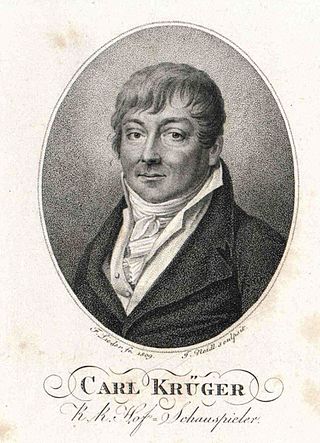
Karl Friedrich Krüger was a German actor and the brother of actress Caroline Demmer.
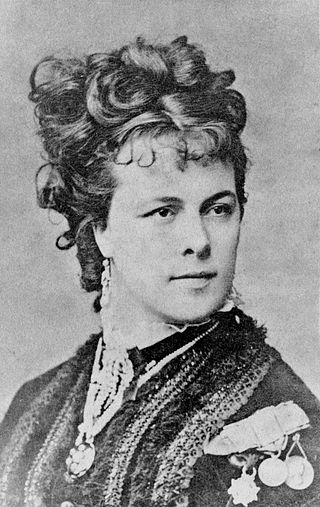
Klara Ziegler, also Clara Ziegler, was a German stage actress and writer.
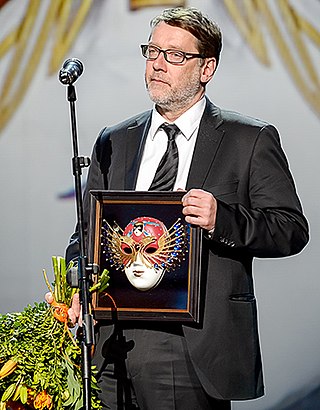
Michael Thalheimer is a German theatre director.
References
- 1 2 3 "Thalia: Nachdruck der Ausgabe Leipzig 1787-1791. Overview". Barnes and Noble. Retrieved 27 July 2020.